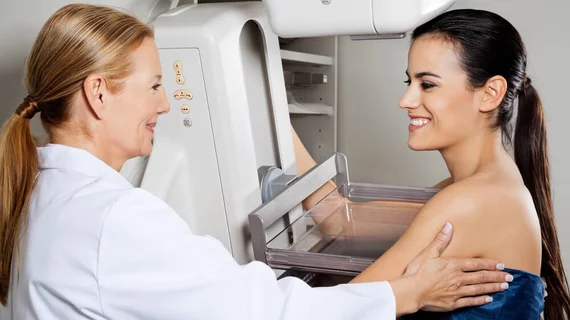Danish study attributes improved treatment, not screening, to decline in breast cancer deaths
Authors of recently published Danish-Norwegian research found a steady decline in breast cancer mortality during the 23-year study period. They determined the drop was due to advances in treatment rather than the region’s screening program, according to research published in the International Journal of Cancer.
Henrik Støvring and colleagues tracked Norwegian women ages 30 to 89 from 1987 through 2010—identifying those who developed breast cancer.
They compared the number of cancer deaths before the Danish screening program was introduced in early 1990 to deaths after the program. Støvring and colleagues found the decline was just as large in ages that were not screened as those that were.
"The important result is that we do not find a beneficial effect of breast cancer screening any longer,” said Støvring, with Aarhus University in Denmark in a statement. “The original randomized trials examining breast cancer screening were conducted way back in the 1980s, and they showed an effect, but the fact is that the better the treatment methods become, the less benefit screening has."
The authors believe these results can be applied directly to Denmark and other areas where women between the ages of 50 to 69 are offered mammography screening every two years.
Currently, the American Cancer Society suggests women 55 years and older can continue yearly screening or switch to a mammogram every two years.
While the results demonstrate screening was not directly responsible for lowering the mortality rate, Støvring said it is not his goal to say whether screening programs should continue or not.
"It's certainly not my task to decide how the research results should be used, but my suggestion would nonetheless be that we should get together and begin to investigate whether it would beneficial to do something other than screening and whether this could have a better effect,” Støvring added.

